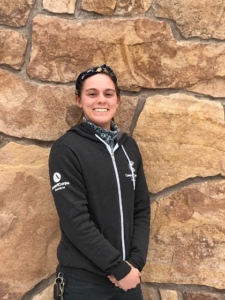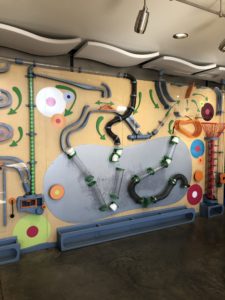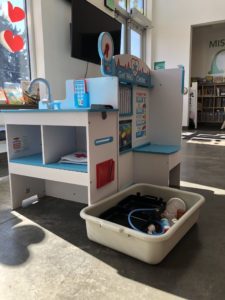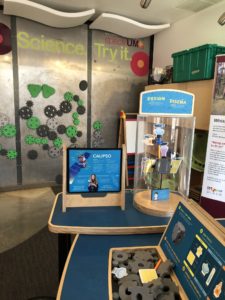Food Sovereignty: Life at Missoula Food Bank and Community Center By Taylor Hill

I’ve only been at Missoula Food Bank for a little over a month, but I could tell on my very first day that the people who work here care deeply about their community. It doesn’t matter how much money you make, where you live, or how many kids you have, no one leaves here hungry. But we do more than feed people – we connect people with housing resources, help them pay their utility bills, give out hats, gloves, and heaters. We also have a free play area where kids get to explore science, culture, history, and all kinds of other topics while their parents shop for food. And, most importantly, they get to eat healthy, filling meals for free. I spend most of my time engaging with kids and their caregivers. Sometimes that means playing hide and seek with dinosaurs, and sometimes that means listening to how they escaped an abusive situation and have nowhere else to go.

Uzair doesn’t have a home. He lives in a borrowed trailer with 3 other siblings. His favorite part of the day is coming to play at EmPower because he doesn’t have toys or books of his own. He also gets to eat as many snacks as he wants! Uzair’s mother, Amanda, utilizes the food bank every day. She doesn’t have enough room to store more than a day or two supply of food and has no access to clean drinking water. The average cost of a single bedroom apartment climbed 18% in the last year and making a car payment is cheaper than paying rent in a competitive market.


While Uzair and his story are not necessarily unique to Missoula, a city currently experiencing unprecedented growth and soaring living costs, his presence in my life has enlightened me to the realities of being in poverty in my community.
I am a recent graduate of the University of Montana, and Missoula has been my home for the last 3 years. Any Missoulian knows homelessness is a major struggle for many in our community, but hunger often goes unnoticed by leaders and policymakers. How are people going hungry when most of our state is active farmland?
Hunger is a failure of the current privatized food systems. Most of the food grown in Montana is not eaten by Montanans – it is sold to distributors and manufacturers that then sell it to grocery stores and distribute it across the nation. This system wastes over 30% of the food supply every year while many of the people who helped produce that food go hungry.
The focus of my service is to increase food sovereignty in Missoula. Food sovereignty is the right of all peoples to healthy and culturally appropriate foods, and their right to define their own food and agricultural systems. It focuses on the needs of the people who produce and consume the food ahead of the demands of markets and corporations. One way to support food sovereignty is by sourcing local produce and products. Or even better, growing the food yourself. My goal this year is to create a thriving community garden that can teach people how to grow their own food and be less dependent on systems designed to take advantage of them. A portion of the garden will be dedicated to growing the ancestral food of the Salish, Kootenai, and Blackfeet peoples. The Missoula Food Bank is a wonderful resource for people experiencing emergency food needs, but it constantly lacks fresh produce and culturally significant foods. It is my hope that this garden will inspire parents and caregivers to continue to teach their children how to garden and empower them to stand up for their right to good, healthy, nourishing, and fresh food.
 Blog
Blog